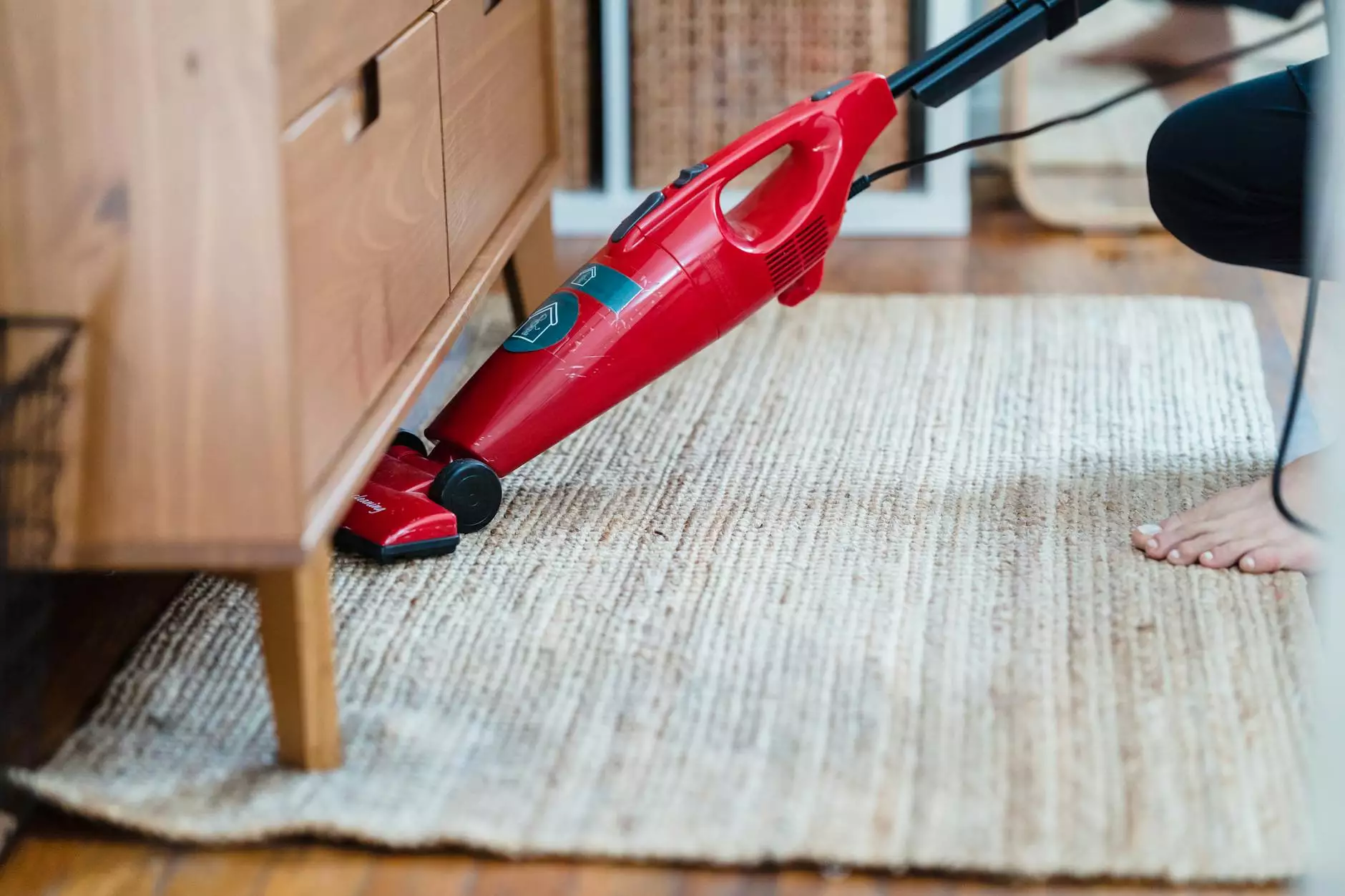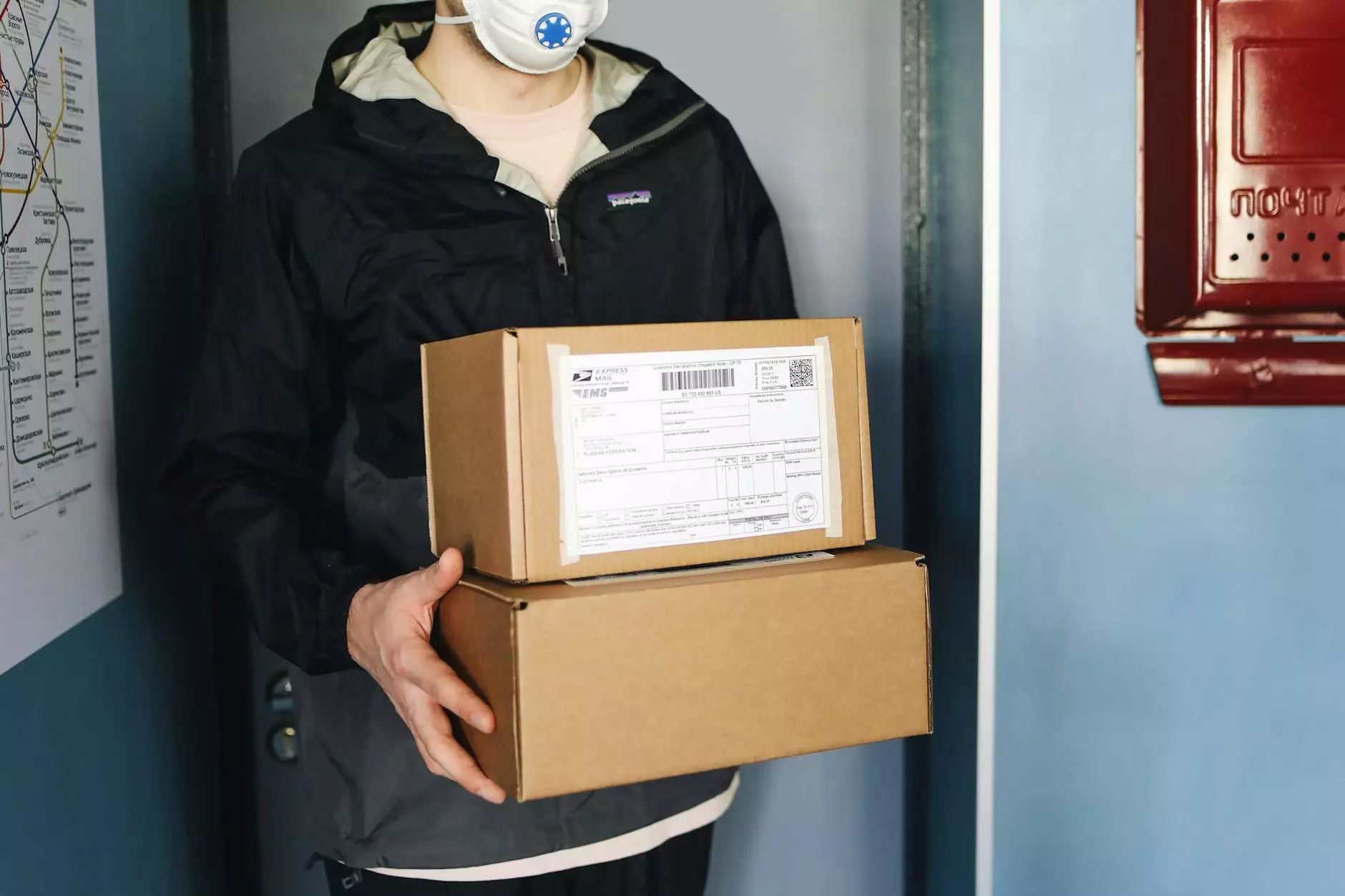The Importance of Commercial Vacuum Systems in Modern Business

In today's fast-paced business environment, maintaining a clean and organized workplace is more critical than ever. A commercial vacuum system plays a pivotal role in achieving this goal, providing efficient cleaning solutions across various industries. From offices to industrial sectors, these systems are designed to enhance productivity and improve the overall work atmosphere. This article delves into the benefits, types, and best practices for implementing commercial vacuum systems, ensuring your business not only meets cleanliness standards but also thrives in its operations.
What is a Commercial Vacuum System?
A commercial vacuum system is a specialized cleaning device designed for heavy-duty cleaning tasks in commercial and industrial environments. Unlike standard household vacuum cleaners, these systems are built to handle larger areas, more debris, and continuous use. They come equipped with advanced technology to ensure comprehensive cleaning while being energy-efficient and user-friendly.
Key Features of Commercial Vacuum Systems
- High Suction Power: Designed to lift more dirt and dust from surfaces effectively.
- Durability: Built with robust materials for longevity in demanding conditions.
- Multi-Purpose Cleaning: Capable of cleaning various surfaces, including carpets, tiles, and hard floors.
- HEPA Filtration: Often equipped with HEPA filters to trap allergens and improve air quality.
- Ease of Use: Ergonomically designed for ease of operation, often with onboard tools for different cleaning tasks.
Why Invest in a Commercial Vacuum System?
The decision to invest in a commercial vacuum system can significantly enhance the operation of your business. Here are some compelling reasons why these systems are indispensable:
1. Improved Efficiency
Time is money in the business world. A commercial vacuum system can clean larger areas in less time compared to traditional cleaning methods. With powerful suction capabilities and specialized attachments, these machines can tackle stubborn dirt and grime quickly, allowing your employees to focus on their core tasks without interruptions.
2. Enhanced Indoor Air Quality
Maintaining a healthy work environment is crucial for employee productivity. Many commercial vacuum systems are designed with advanced filtration systems, such as HEPA filters. These filters capture up to 99.97% of particles, including allergens, dust mites, and pollutants, significantly improving indoor air quality. Better air quality can lead to reduced absenteeism caused by allergies and respiratory issues, fostering a healthier workplace.
3. Cost-Effectiveness
While the initial investment in a commercial vacuum system may be higher than conventional cleaning equipment, the long-term savings are substantial. These vacuum systems are energy-efficient and require less maintenance, which translates to lower operational costs. Moreover, their efficiency leads to less time spent on cleaning, allowing staff to allocate their time to other productive tasks.
4. Versatility
Commercial vacuum systems are versatile machines capable of handling various cleaning tasks. Whether your business handles carpeted offices, tiled hallways, or outdoor spaces, there are vacuum systems tailored for each environment. Their ability to accommodate different surfaces minimizes the need for multiple cleaning devices, streamlining your cleaning process.
Types of Commercial Vacuum Systems
Understanding the different types of commercial vacuum systems available in the market is crucial for selecting the right one for your business needs. Here are the primary types:
1. Upright Vacuums
Upright vacuums are popular for carpeted spaces. They provide powerful suction and are typically easier to maneuver on floors covered with carpets. Many models come with a wide cleaning path, which allows for quick cleaning of large areas. Their design often includes attachments for stairs and upholstery cleaning.
2. Canister Vacuums
Canister vacuums consist of a wheeled container and a flexible hose with various attachments. This type is excellent for reaching tight spaces and cleaning above-floor areas. Their adaptability makes them suitable for businesses with diverse floor types and hard-to-reach spots, such as corners and stairs.
3. Backpack Vacuums
Backpack vacuums are lightweight and can be worn on the back like a backpack, providing great mobility. They are ideal for cleaning large areas, especially in crowded environments. Their design allows for easy navigation through furniture and other obstacles, making them efficient for janitorial services in schools, offices, and healthcare facilities.
4. Wet/Dry Vacuums
These versatile vacuums can handle both liquid spills and solid debris, making them essential in industrial settings or for businesses that deal with a lot of dust and liquids. They are engineered for heavy-duty use and are often equipped with specialized filters to manage different types of waste.
5. Central Vacuum Systems
Central vacuum systems are permanently installed in buildings and offer the convenience of cleaning without needing to lug a vacuum cleaner around. With outlet points located throughout the building, users can easily connect a hose and clean any area with minimal effort. These systems are perfect for large facilities, drastically reducing the time and effort required for cleaning.
Best Practices for Implementing a Commercial Vacuum System
Successfully integrating a commercial vacuum system into your business operations requires planning and practice. Here are some best practices to ensure optimal performance:
1. Assess Your Cleaning Needs
Before purchasing a vacuum system, evaluate your cleaning requirements. Consider factors such as the size of the space, types of surfaces, and frequency of cleaning needed. This assessment will help you choose the most suitable type of vacuum for your operations.
2. Train Your Staff
Proper training ensures that your staff knows how to utilize the commercial vacuum systems effectively. Investing in training programs will not only enhance cleaning performance but also prolong the lifespan of the equipment by promoting correct usage and maintenance practices.
3. Schedule Regular Maintenance
Regular maintenance is crucial for any cleaning equipment's efficiency. Adhere to a maintenance schedule that includes checking filters, replacing worn-out parts, and regular cleaning of the vacuum system itself. This proactive approach can prevent costly repairs and extend the life of your investment.
4. Optimize Cleaning Processes
Implementing systematic cleaning processes can maximize the effectiveness of your commercial vacuum system. Designate areas for regular cleaning—and ensure that staff follow these schedules diligently. This structured approach can drastically improve cleanliness levels across your business premises.
5. Monitor Performance and Gather Feedback
Regularly monitor the performance of your vacuum systems and gather feedback from your cleaning staff. This feedback can provide insights into any issues or areas for improvement, allowing you to make adjustments and enhance cleaning operations continuously.
Conclusion
In conclusion, a commercial vacuum system is an essential investment for businesses aiming to maintain high standards of cleanliness and efficiency. With the right system in place, companies can improve air quality, enhance productivity, and save on long-term costs. By understanding the types of vacuum systems available and implementing best practices for their use, businesses can create a cleaner, healthier work environment that benefits both employees and clients alike.
As you consider the implementation of a commercial vacuum system, remember the significant impact it can have on your daily operations. Whether you're in the service industry, healthcare, or any sector requiring cleanliness, the benefits are clear. Empower your business with the right vacuum technology, and witness the transformation it brings to your workplace.









